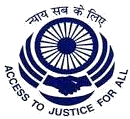Frequently Asked Questions
FAQs
Regarding Lok Adalat
Questions and Their Answers
- What is Lok Adalat and what is its importance?
- Does the system of Lok Adalat receive constitutional recognition?
- Why should disputes be resolved in Lok Adalat? What are its benefits?
Answer to 1, 2, 3:
Lok Adalat means People’s Court. Lok Adalat is an alternative dispute resolution system, which is a part of the Indian legal system (Alternative Dispute Resolution). In many cases, court proceedings go on for years. Due to these long processes, the general public faces trouble, and there is a delay in obtaining justice. Sometimes, this leads to further disputes between the two parties and increases bitterness. In some situations, even if the case is decided, it may not bring complete satisfaction to both parties. If the dispute is resolved through compromise, the relationship may also be preserved. In this situation, even the court allows such compromised decisions. Justice through compromise can also be achieved in Lok Adalat. Lok Adalat can be very useful in such cases. Before referring a case to Lok Adalat, it is checked whether both parties are ready for a settlement. If both are willing, the case can be brought before Lok Adalat and resolved in the presence of a presiding officer. Thus, in the system of Lok Adalat, mutual consent-based resolution is preferred. Lok Adalat provides a unique platform of constitutional democracy for amicable dispute resolution. It is an important part of our legal system. One of the major benefits of Lok Adalat is that once a decision is made, it cannot be appealed. So the decision given is final. People do not have to spend money to appeal the case again. In India’s judicial system, Lok Adalat has made a significant place for itself. The
decision made in Lok Adalat is binding and final to the parties involved. Before 1987, there was no provision for organizing Lok Adalat as per the Indian legal system. But the Legal Services Authority Act, 1987 made Lok Adalat a constitutional system. Now, Lok Adalats are regularly organized at various levels, such as district level, high courts, and civil courts


